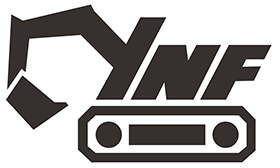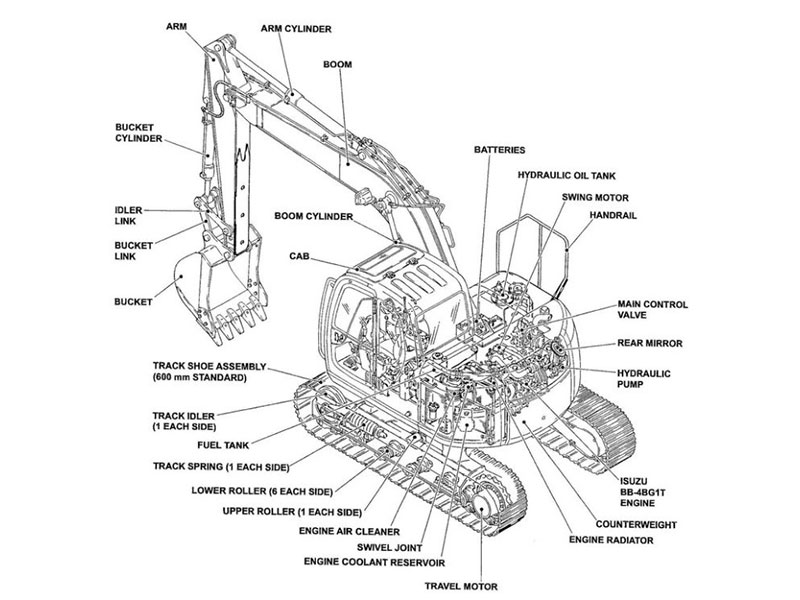
Finding a part-time excavator operator job doesn’t have to be a daunting task. With the right strategies, you can discover opportunities that align with your skills and availability. The demand for part-time excavator operators remains steady, with construction equipment operator jobs expected to grow by 5% through 2031, according to the Bureau of Labor Statistics. Employers highly value candidates who possess expertise and relevant certifications. By emphasizing your strengths and utilizing effective job search techniques, you can stand out as a top contender in this competitive field. Begin your search with confidence and take the first step toward securing your next part-time excavator operator role.
Key Takeaways
Utilize online job boards like Indeed and Glassdoor to find part-time excavator operator positions tailored to your skills and location.
Network with local construction companies and contractors; direct outreach can uncover unadvertised job opportunities.
Enhance your application by tailoring your resume and cover letter to highlight relevant skills and certifications, making you stand out to employers.
Obtain essential certifications, such as OSHA training, to validate your skills and increase your marketability in the job market.
Attend industry events and job fairs to connect with potential employers and learn about available positions firsthand.
Leverage social media platforms like LinkedIn to expand your professional network and stay updated on job openings.
Prepare thoroughly for interviews by researching the company and practicing responses to common questions, showcasing your expertise and enthusiasm.
Explore the Best Platforms for Part Time Excavator Operator Jobs

Finding part-time excavator operator positions becomes easier when you know where to look. The right platforms can connect you with open positions that match your skills and schedule. Let’s explore some of the best options to kickstart your search.
Online Job Boards and Websites
Online job boards are a great starting point for finding part-time excavator operator jobs. Websites like Indeed, ZipRecruiter, and Glassdoor regularly list open positions in the building and construction industry. These platforms allow you to filter results by location, job type, and experience level, making it simple to find roles that fit your needs.
Pro Tip: Set up job alerts on these platforms to get notified about new openings. This ensures you don’t miss out on opportunities as they arise.
Specialized websites, such as Heavy Equipment College, also provide resources for operators. They often feature job boards tailored to the heavy equipment and construction sectors. These sites can help you find positions that align with your expertise.
Local Construction Companies and Contractors
Reaching out to local construction companies and contractors is another effective way to find part-time jobs. Many small and mid-sized businesses in the building and construction field hire excavator operators for short-term or part-time projects. Companies like CJ Miller LLC often post job openings directly on their websites or social media pages.
Visit the websites of local contractors and check their careers sections for open positions. If you don’t see any listings, consider contacting them directly. A quick phone call or email expressing your interest can sometimes lead to opportunities that aren’t publicly advertised.
Networking with local contractors can also help you build relationships in the industry. Even if they don’t have immediate openings, they might keep you in mind for future projects.
Social Media and Networking Groups
Social media platforms like LinkedIn and Facebook have become valuable tools for job seekers in the building and construction industry. Many companies post job openings on their social media pages, and you can join groups dedicated to heavy equipment operators to stay updated on opportunities.
Search for Facebook groups or LinkedIn communities focused on construction jobs. These groups often share leads for part-time excavator operator positions and provide a space to connect with other professionals in the field.
Don’t underestimate the power of networking. Engaging with posts, sharing your availability, and participating in discussions can increase your visibility and help you land a job.
Additionally, platforms like Crew HR and Resume Build offer resources to enhance your job search. They provide tips on crafting resumes and connecting with employers, which can give you an edge in finding the right position.
Craft a Winning Application for Excavator Operator Roles
Creating a strong application is essential when applying for part-time excavator operator jobs. Employers often receive numerous applications, so yours needs to stand out. By tailoring your resume and crafting a compelling cover letter, you can showcase your critical skills and increase your chances of landing an interview.
Tailor Your Resume to Highlight Excavator Operator Skills
Your resume serves as your first impression. To make it impactful, focus on highlighting the critical skills that employers look for in an excavator operator. Start by reviewing the job description carefully. Identify the required skills and core tasks mentioned, and ensure your resume reflects them.
For example, if the job emphasizes operating hydraulic excavators or performing maintenance, include specific examples of your experience with these tasks. Use clear, action-oriented language to describe your achievements. Instead of saying, “Responsible for operating equipment,” write, “Operated hydraulic excavators to complete excavation projects efficiently and safely.”
Here are some tips to make your resume shine:
Use a professional format: Keep it clean and easy to read. Use bullet points to list your responsibilities and accomplishments.
Highlight certifications: If you hold certifications like OSHA safety training or heavy equipment operation, list them prominently.
Quantify your experience: Include numbers where possible. For instance, “Completed excavation projects for 10+ residential and commercial sites.”
Tailoring your resume to the specific job requirements can greatly increase your chances of securing an interview. Employers value relevance, so make sure your resume aligns with the role.
Write a Cover Letter That Stands Out
A well-written cover letter complements your resume and gives you an opportunity to explain why you’re the perfect fit for the job. Use this space to highlight your critical skills and passion for the role.
Start by addressing the hiring manager directly. If their name isn’t listed, use a professional greeting like “Dear Hiring Manager.” In the opening paragraph, mention the position you’re applying for and express enthusiasm for the opportunity.
In the body of the letter, focus on your experience and how it aligns with the employer’s needs. For example, if the role involves operating a hydraulic excavator, share a brief story about a time you successfully completed a similar project. This personal touch can make your application memorable.
Here’s a simple structure to follow:
Introduction: State the job title and express your interest.
Body: Highlight your experience, certifications, and critical skills. Explain how they align with the company’s needs.
Closing: Thank the employer for considering your application and express your eagerness to discuss the role further.
A strong cover letter shows employers that you’ve taken the time to understand their needs. It also demonstrates your communication skills, which are valuable in any role.
By tailoring your resume and writing a standout cover letter, you can present yourself as a qualified and motivated candidate. These steps will help you move closer to securing your next part-time excavator operator job.
Build Skills and Certifications to Boost Your Salary Potential

Building your skills and earning certifications can significantly increase your value as an excavator operator. Employers often look for candidates who demonstrate expertise and a commitment to safety. By focusing on certifications and gaining hands-on experience, you can boost your qualifications and even negotiate a higher salary.
Obtain Essential Excavator Operator Certifications
Certifications play a crucial role in proving your competence as an excavator operator. They not only validate your skills but also show employers that you meet industry standards. Programs like the OSHA Excavator Operator Training cover essential topics such as machine controls, excavation techniques, safety protocols, and equipment maintenance. Completing such a program ensures you operate machinery safely and efficiently while adhering to regulations.
Expert Insight: According to the National OSHA Foundation, their training program combines theory with hands-on practice, helping participants develop the skills needed to excel in the field. Upon completion, you’ll receive a recognized certification that highlights your proficiency and commitment to safety.
Additionally, institutions like Heavy Equipment College offer specialized courses for excavator operators. These programs teach you how to handle equipment responsibly, protecting yourself and others on the job site. Certification from such programs can set you apart from other candidates and open doors to better opportunities.
When choosing a certification program, look for ones that align with your career goals. Some certifications may focus on specific types of excavators or advanced techniques, which can help you qualify for higher-paying roles. Employers often associate certifications with reliability and expertise, making them a valuable asset in your job search.
Gain Practical Experience Through Part-Time Roles
Practical experience is just as important as certifications when it comes to excelling as an excavator operator. Part-time roles provide an excellent opportunity to refine your skills while earning a steady income. These positions allow you to work on real-world projects, giving you a chance to apply what you’ve learned in training.
Start by seeking part-time roles with local construction companies or contractors. These jobs often involve tasks like operating hydraulic excavators, performing site preparation, or assisting with excavation projects. Each task helps you build confidence and improve your efficiency. Over time, this hands-on experience can make you a more competitive candidate for higher-paying positions.
Pro Tip: Keep track of the projects you’ve worked on and the skills you’ve gained. This information can be added to your resume to showcase your practical experience to potential employers.
Part-time roles also give you insight into the typical salary and pay range for excavator operators in your area. While starting salaries may vary, gaining experience can help you negotiate better pay. For example, experienced operators often earn a higher salary compared to those just starting out. Understanding the pay range for your role can help you set realistic expectations and aim for growth.
By combining certifications with practical experience, you position yourself as a well-rounded candidate. Employers value individuals who bring both knowledge and hands-on expertise to the table. These efforts not only enhance your skills but also increase your earning potential in the construction industry.
Network to Find Part Time Excavator Operator Opportunities
Networking can open doors to opportunities that you might not find through traditional job searches. Building connections within the construction industry helps you stay informed about part-time excavator operator roles and positions you as a reliable candidate. Let’s explore two effective ways to expand your network.
Attend Industry Events and Job Fairs
Industry events and job fairs are excellent places to meet potential employers and learn about available positions. These gatherings bring together professionals from the construction and heavy equipment sectors, creating a space for you to showcase your skills and enthusiasm.
When attending these events, come prepared. Bring copies of your resume and dress professionally. Approach company representatives with confidence and introduce yourself. Share your experience as an excavator operator and express your interest in part-time roles. Employers often appreciate candidates who take the initiative to connect in person.
“Attending training programs and industry events gave me the confidence I needed to succeed,” shared a former trainee from West Coast Training. They found a job quickly after completing their program, thanks to the connections they made during these events.
Job fairs also provide opportunities to attend workshops or seminars. These sessions often cover topics like resume building, interview preparation, and industry trends. Participating in these activities not only enhances your knowledge but also shows employers your commitment to professional growth.
Leverage Personal and Professional Connections
Your personal and professional network can be a powerful tool in your job search. Many part-time excavator operator positions are filled through referrals, so letting people know you’re looking can lead to unexpected opportunities.
Start by reaching out to friends, family, and former colleagues who work in construction or related fields. Share your goals and ask if they know of any openings. Even if they don’t have immediate leads, they might connect you with someone who does.
Professional connections, such as instructors from training programs, can also be valuable. For example, graduates from West Coast Training often credit their instructors for helping them find jobs. One trainee mentioned, “I gained confidence and got hired at the first place I applied to, thanks to the support and guidance I received.”
Social media platforms like LinkedIn can further expand your reach. Update your profile to highlight your skills and certifications as an excavator operator. Join groups or forums dedicated to construction professionals and engage in discussions. Posting about your job search can attract the attention of recruiters or employers looking for part-time operators.
Pro Tip: When networking, focus on building genuine relationships. Show interest in others’ experiences and offer help when possible. A strong network is built on mutual support and trust.
By attending events and leveraging your connections, you increase your chances of finding part-time excavator operator opportunities. Networking not only helps you discover hidden job openings but also strengthens your reputation within the industry.
Prepare for Interviews to Secure Part Time Excavator Operator Jobs
Preparing for an interview as an excavator operator can feel overwhelming, but with the right approach, you can confidently showcase your skills and land the job. Employers want to see that you not only have the technical expertise but also the problem-solving abilities and enthusiasm needed for the role. Let’s break down how you can ace your interview.
Research the Role and Employer
Before stepping into the interview, take time to understand the company and the specific role you’re applying for. Employers appreciate candidates who show genuine interest in their business and demonstrate knowledge about their operations.
Start by visiting the company’s website. Look for details about their projects, values, and work culture. If they specialize in certain types of excavation work, such as residential or commercial projects, make a note of it. This information will help you tailor your responses during the interview.
Pro Tip: Review the job description carefully. Identify the key skills and responsibilities mentioned, and think about how your experience aligns with them.
Researching the employer also allows you to prepare thoughtful questions. For example, you could ask, “What types of excavation projects does your team typically handle?” or “How do you support operators in developing their skills?” Asking questions shows your interest in the role and helps you stand out as a proactive candidate.
Showcase Your Expertise and Problem-Solving Skills
During the interview, focus on highlighting your expertise as an excavator operator. Share specific examples from your past experiences to demonstrate your skills and ability to handle challenges. Employers often ask questions like, “Describe a challenging excavation project you’ve worked on. How did you overcome the difficulties?” Use this opportunity to showcase your problem-solving abilities.
For instance, you might say, “In my previous role, I worked on a site with unstable soil conditions. I adjusted the excavation technique and collaborated with the team to ensure safety and efficiency. The project was completed on time without any incidents.” This kind of response highlights both your technical skills and your ability to think critically under pressure.
Employers also want to see your passion for the job. When asked questions like, “What do you enjoy most about operating an excavator?” share your enthusiasm. You could say, “I love the precision and control involved in operating an excavator. It’s rewarding to see a project take shape because of the work I’ve done.” Your excitement for the role can leave a lasting impression.
Quick Tip: Practice answering common interview questions out loud. This helps you feel more confident and ensures your responses are clear and concise.
Finally, don’t forget to emphasize your commitment to safety. Mention any certifications you hold, such as OSHA training, and explain how you apply safety protocols on the job. Employers value operators who prioritize safety and demonstrate responsibility on-site.
By researching the role, preparing thoughtful questions, and showcasing your skills and passion, you can approach your interview with confidence. Remember, every interview is an opportunity to learn and improve, so take each one as a step closer to landing your ideal part-time excavator operator job.
Finding part-time excavator operator jobs takes effort, but the rewards are worth it. Start by exploring job boards and reaching out to local construction companies. Build your skills through certifications and hands-on experience to stand out. Networking can also uncover hidden opportunities, so connect with industry professionals and attend events. Tailor your resume and cover letter to highlight your expertise, and prepare thoroughly for interviews. With these steps, you’ll position yourself as a strong candidate. Take action today and move closer to securing the part-time excavator operator role you’ve been aiming for.
FAQ
What are the training requirements for excavator operators?
To operate an excavator, you need proper training to ensure safety and efficiency. Most employers expect you to complete a recognized training program, such as OSHA Excavator Operator Training. These programs teach you essential skills like machine controls, excavation techniques, and safety protocols. They also provide hands-on practice, which helps you gain confidence in operating heavy equipment. Some vocational schools and institutions, like Heavy Equipment College, offer specialized courses tailored to excavator operators. Completing these programs not only meets industry standards but also boosts your chances of landing a job.
Do I need certifications to work as a part-time excavator operator?
Certifications are not always mandatory, but they significantly improve your job prospects. Employers often prefer candidates with certifications that demonstrate their knowledge and commitment to safety. For example, OSHA certifications cover critical topics like equipment maintenance and workplace safety. These credentials show that you meet industry standards and can handle the responsibilities of the role. Additionally, some states or employers may require specific licenses, so it’s a good idea to check local regulations.
Where can I find part-time excavator operator jobs?
You can find part-time excavator operator jobs on various platforms. Online job boards like Indeed, ZipRecruiter, and Glassdoor list numerous openings. Local construction companies and contractors also post job opportunities on their websites or social media pages. Networking plays a crucial role too. Attend industry events, join professional groups on LinkedIn or Facebook, and connect with others in the construction field. These efforts can help you discover hidden opportunities that aren’t advertised online.
How can I make my application stand out?
To make your application stand out, tailor your resume and cover letter to the job. Highlight your excavator operator skills, certifications, and relevant experience. Use action-oriented language to describe your achievements. For instance, instead of saying, “Operated equipment,” write, “Efficiently operated hydraulic excavators to complete excavation projects on time.” In your cover letter, explain why you’re passionate about the role and how your skills align with the employer’s needs. A personalized application shows effort and increases your chances of getting noticed.
What skills do employers look for in excavator operators?
Employers value technical skills like operating hydraulic excavators, performing site preparation, and maintaining equipment. They also look for soft skills such as problem-solving, teamwork, and communication. Safety awareness is another critical factor. Demonstrating your ability to follow safety protocols and handle challenges on-site can set you apart from other candidates. Practical experience and certifications further enhance your appeal to employers.
Can I negotiate my salary as a part-time excavator operator?
Yes, you can negotiate your salary, especially if you have certifications and experience. Research the average pay for excavator operators in your area to set realistic expectations. Highlight your qualifications, such as completed training programs or successful projects, during negotiations. Employers often value candidates who bring both expertise and reliability to the table, which can give you leverage when discussing pay.
How can I gain practical experience as an excavator operator?
Part-time roles offer an excellent way to gain practical experience. Look for opportunities with local construction companies or contractors. These jobs allow you to work on real-world projects, such as site preparation or excavation tasks. Volunteering for community projects or internships can also help you build hands-on knowledge. Keep track of your accomplishments and add them to your resume to showcase your growing expertise.
What should I expect during an interview for an excavator operator job?
During an interview, employers will likely ask about your technical skills, certifications, and past experiences. Be prepared to share examples of how you’ve handled challenges on the job. For instance, you might describe a time when you adjusted excavation techniques to overcome difficult soil conditions. Employers also appreciate candidates who show enthusiasm for the role and a commitment to safety. Research the company beforehand and prepare thoughtful questions to demonstrate your interest.
Are there opportunities for career growth as an excavator operator?
Yes, working as an excavator operator can lead to career growth. Gaining certifications and experience opens doors to higher-paying roles or specialized positions, such as heavy equipment trainer or site supervisor. Networking and continuous learning also play a role in advancing your career. By staying updated on industry trends and improving your skills, you can position yourself for long-term success in the construction field.
How can I stay updated on job openings?
Set up job alerts on platforms like Indeed and ZipRecruiter to receive notifications about new openings. Follow local construction companies and contractors on social media to stay informed about their hiring needs. Joining professional groups or forums for heavy equipment operators can also help you stay in the loop. Regularly checking these resources ensures you don’t miss out on potential opportunities.





